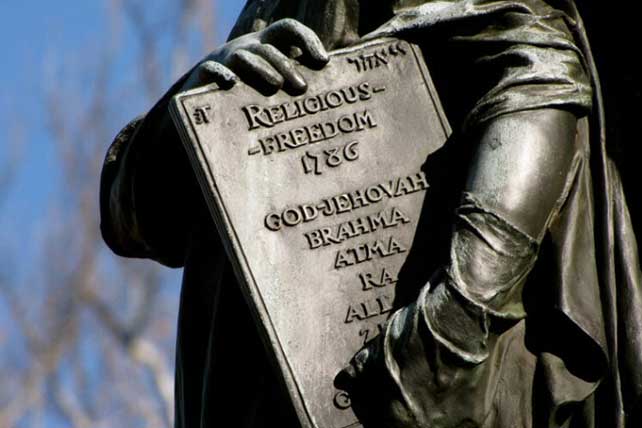“This is an important course correction from the Trump administration’s attack on every person’s right to believe as they choose without coercion,” said the Rev. Paul Brandeis Raushenbush, Interfaith Alliance’s president and CEO, in a statement. “The federal government has an obligation to ensure all people can equitably access life-saving social services without sacrificing their religious freedom rights and without fear of discrimination.”
The rule responds to an executive order in February 2021 when President Joe Biden re-established the White House Office of Faith-based and Neighborhood Partnerships.
Stanley Carlson-Thies, founder of the Institutional Religious Freedom Alliance, also welcomed the development that has long involved staffers of that office and its cabinet-level counterparts.
“I’m glad to see the rights of beneficiaries not to participate in unwanted religion be well protected again,” he said in a statement to Religion News Service. “Government needs to do a better job on the positive side: accommodating beneficiaries who can best be helped when a religion shaped program is one of the options.”
In January 2021, Americans United joined other groups in suing on the day the Trump administration rule became effective, shortly before the end of his presidential term. The suit has been on hold while the Biden administration worked to finalize the new rule.
Melissa Rogers, who was appointed by Biden in 2021 to oversee the so-called faith-based office, as she had in former President Barack Obama’s second term, also had opposed the Trump administration’s plans to remove the requirement that faith-based social service providers offer a secular alternative to people seeking their assistance.
“You can’t benefit from protections you don’t know you have,” she tweeted in January 2020. “The religious liberty of social service beneficiaries is as important as the religious liberty of faith-based providers.”
This article originally appeared here.

